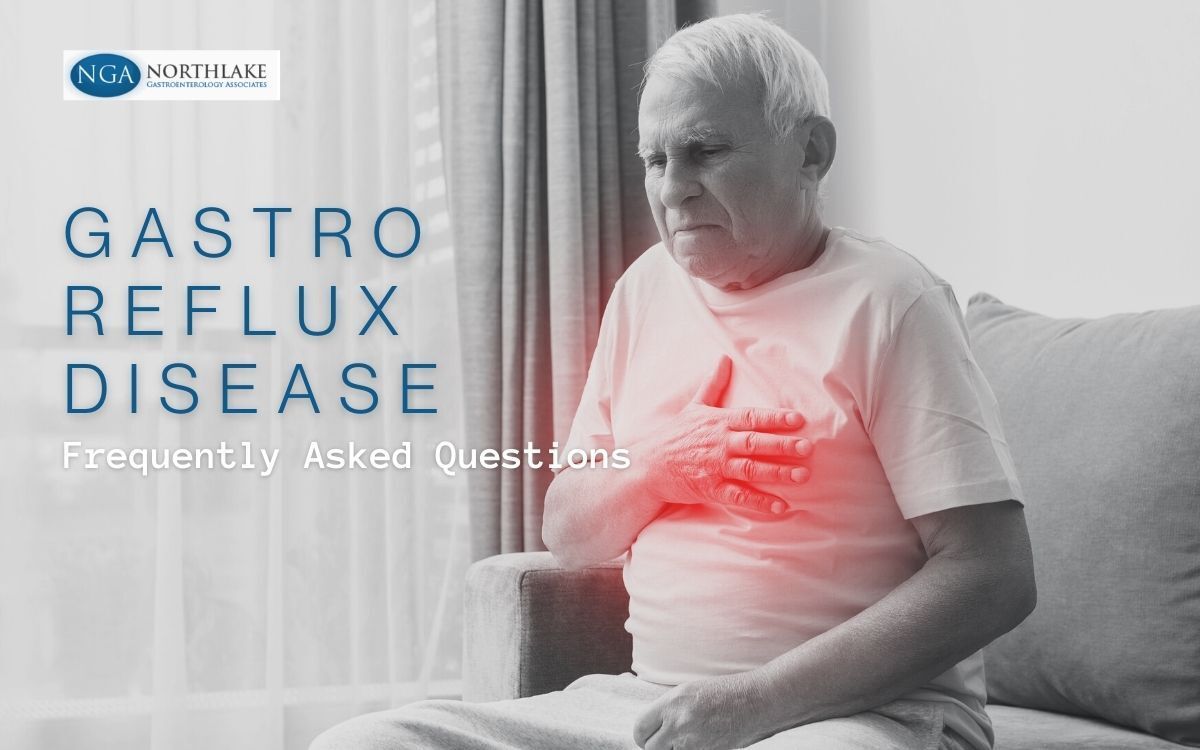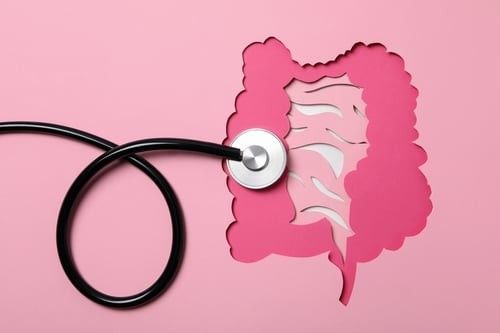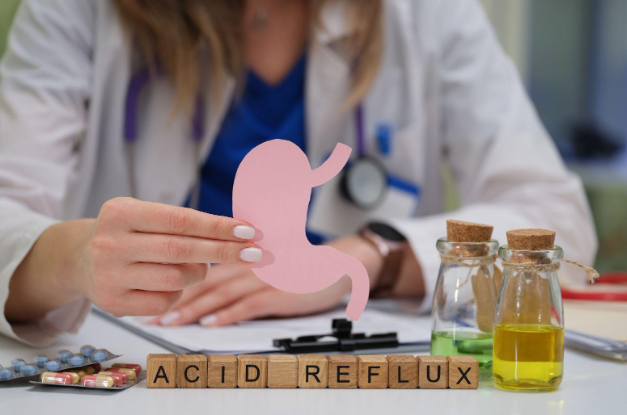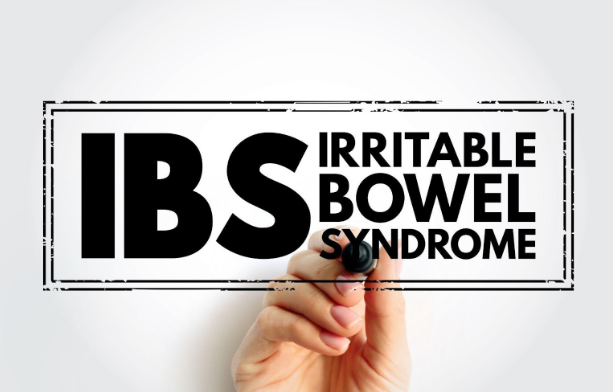FAQ: All About Gastroesophageal Reflux Disease (GERD)

Have you ever experienced the heartburn that comes after eating a spicy burrito? If you have, then you know it's an incredibly unpleasant feeling. Although the occasional bout of heartburn isn't something to panic over, frequent heartburn might indicate something more serious.
What Is the Definition of GERD?
When acid from your stomach persistently leaks into your esophagus, it causes the condition known as gastroesophageal reflux disease (GERD) or chronic reflux.
Acid reflux usually happens because your lower esophageal sphincter (the valve at the bottom of the esophagus) doesn’t close properly when your food makes its way to your stomach. As a result, acid flows from your stomach to your esophagus, throat, and mouth.
Almost everyone experiences acid reflux at some point. However, if you suffer from it multiple times a week for extended periods of time, you could be experiencing GERD. If this is the case, contact a healthcare provider so you can get the right treatment. GERD is not just an inconvenience. If left unchecked, it can lead to more serious issues in the future.
What Are the Symptoms of GERD?
The main symptoms of GERD are recurring acid regurgitation and heartburn. People who have GERD but don't have heartburn may experience chest pain, a hoarse voice in the morning, or have issues with swallowing.
Some other symptoms are the feeling of choking, dry cough, bad breath, vomiting, or a consistent sore throat.
What Are the Symptoms in Children?
Children with GERD exhibit similar symptoms as adults. They may frequently vomit, refuse food, and experience respiratory problems. When lying down, they may consistently taste the sourness of acid.
More signs in babies and children include choking, wheezing, bad breath, and irritability or trouble sleeping after eating.
What Are Common Reasons for Acid Reflux?
Acid reflux occurs when the lower esophageal sphincter has relaxed or is weakened. The sphincter usually closes tightly when your food has made it to your stomach. However, if it relaxes at the wrong time, the food you swallowed mixed with stomach acid can go back up your esophagus.
Are There Triggers for Acid Reflux?
- One of the factors is the abdomen being under too much pressure. Many pregnant women have heartburn on a near-daily basis due to the pressure of the baby.
- If you have a hiatal hernia, you may not be able to process food normally.
- Another factor for acid reflux is the type of food you eat. If your body doesn't do well with dairy, fried foods, or spicy foods, it can trigger heartburn.
- The medication you take can also be a factor. Allergy medication, asthma medication, antidepressants, painkillers, sedatives, or medication for high blood pressure can also cause people to experience acid reflux.
What Are GERD Risk Factors?
If you are obese or pregnant, have a hiatal hernia, or have a connective tissue disorder, you are more likely to develop GERD.
If you already have GERD, there are some lifestyle choices that may aggravate it. Regularly smoking and drinking alcohol, for example, can increase your symptoms. Drinking coffee and tea can also aggravate GERD.
Your eating habits may also pose an issue. Eating large meals, eating too close to bedtime, or consuming fried and fatty foods can trigger GERD. Nonsteroidal anti-inflammatory drugs such as aspirin may also be a trigger.
What Are the Dangers of Long-Term GERD?
Although GERD isn't necessarily dangerous, long-term GERD does come with some serious health problems. GERD can cause trouble swallowing, chest pain, heartburn, and even bleeding. Untreated GERD can lead to esophagitis, where the lining of the esophagus gets irritated and inflamed by stomach acid. Over time, ulcers can also develop in the esophagus.
Another health problem that can develop is Barrett's esophagus. Nearly 10% of people who develop long-term GERD experience this. If acid reflux continues to damage your esophagus, the cells that make up its lining change, which can increase your risk of developing esophageal cancer.
With long-term GERD, it is possible to develop two different types of esophageal cancer. Adenocarcinoma is cancer that develops at the bottom of the esophagus. It is usually a result of Barrett's esophagus. The second form of cancer that can develop is squamous cell carcinoma. It develops in the esophageal lining and affects the top and middle portions of the esophagus.
As the esophagus gets damaged over time, it becomes scarred and starts to narrow. This scarring is known as strictures, which can make drinking and eating difficult. They can also stop food and drinks from reaching the stomach.
Can GERD Cause Back Pain?
Heartburn can often cause back pain. When you experience heartburn due to GERD, you will likely experience a sour taste, a burning sensation in your chest, and pain in the midsection of your back. Fortunately, this pain can be managed with good posture, exercise, and staying at a healthy weight.
If you experience back pain after finishing a meal, it could also be referred pain. Look out for other symptoms to help your doctor diagnose the problem.
If your back pain is GERD-related or due to ulcers, you may have to make some changes in your lifestyle. This can be a healthier diet, exercising, losing weight, or even taking medication.
What Are the Diagnosis and Testing Procedures?
Talking with your healthcare provider about the symptoms you are experiencing, as well as your medical history, can help in finding a diagnosis. Your provider may also make some suggestions to control symptoms that can include diet, medication, or other lifestyle changes.
If the suggestions you received aren't working, your doctor may get you tested for GERD. There are a few tests involved in this process. With an upper gastrointestinal GI endoscopy and biopsy, an endoscope is fed through your mouth to examine your upper GI tract, which includes your esophagus, stomach, and duodenum. Your doctor will then remove a small piece of tissue to test for any problems, including GERD.
Your doctor may also want you to undergo an upper GI series to get X-rays of the top portion of your GI tract. You will first have to drink barium, a liquid that makes it easier for the X-ray tech to get images of your upper GI tract.
There are also two tests that measure your esophagus' pH levels—Bravo® (wireless) esophageal pH monitoring study and esophageal pH and impedance monitoring. A thin tube will be inserted either in your nose or mouth down to your stomach. You will then be given a monitor. This will measure your pH while you are going through your daily routine. The esophageal pH and impedance monitor has to be worn for 24 hours, while the Bravo® system needs 48 hours.
The last of the tests is esophageal manometry. This will test how effectively your esophageal muscles move food to your stomach. It will also test how functional your lower esophageal sphincter is. A small tube with sensors will be inserted into your nose. When you swallow, the sensors will be able to calculate the strength of your esophageal sphincter and muscles.
What Are the Treatment Options for GERD?
The most common options are to change your lifestyle habits and take medication. If these options aren't helpful for you, or if you are unable to take medication long-term, you may be eligible for surgery.
Laparoscopic antireflux surgery is the most common form of surgery. It is minimally invasive and will create a new valve mechanism that reinforces the sphincter. The surgeon will wrap the fundus (the upper part of the stomach) around the lower part of the esophagus. This will prevent food from refluxing into the esophagus.
Another minimally invasive option is the LINX device implantation. The device is made up of a ring of tiny magnets that help to keep the stomach and esophagus closed to prevent refluxing acid from getting into the esophagus, while allowing food to pass through.
What Are the Treatment Options for Children?
When it comes to treating children for GERD, it's important to avoid foods that act as triggers. You can also consider over-the-counter or prescribed medication.
Surgery is usually the last resort for children. If your doctor has identified certain correctable causes, however, surgery can be a recommended option.
The Wrap Up
Although not life-threatening, GERD is a serious issue that needs to be taken care of as soon as possible. If you notice that you are experiencing acid reflux on a regular basis, it may be best to seek professional help. There are a number of tests available that can help you figure out what is wrong.
If you think you might be suffering from GERD, it’s best to contact a professional. The experts at Northlake Gastroenterology can help you determine if you are suffering from GERD or not, so contact us today to set up an appointment.
More Blogs












